In Theory
In Theory, New in Ceasefire - Tuesday, February 18, 2014 19:51 - 5 Comments
An A to Z of Theory">Walter Benjamin: Politics of Everyday Life An A to Z of Theory
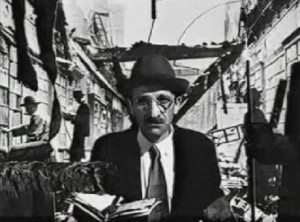
Walter Benjamin was an incisive commentator on everyday life, particularly spaces and objects. In the final part of his eight-part series, Andrew Robinson discusses a range of Benjamin's observations on everyday life - including his writings on cities, his discussions of character, and various everyday ephemera - and surveys the German thinker's relevance today.
In Theory, New in Ceasefire - Tuesday, December 31, 2013 15:06 - 8 Comments
An A to Z of Theory">Walter Benjamin: Critique of the State An A to Z of Theory
 In the penultimate essay in his series on Walter Benjamin, Andrew Robinson examines the critique of the state in Benjamin's much-discussed “Critique of Violence”. Robinson explains why Benjamin saw the state as an expression of a fatalistic worldview, what kind of action he believed could destroy oppression, and what this means for the possibilities of diffuse social power.
In the penultimate essay in his series on Walter Benjamin, Andrew Robinson examines the critique of the state in Benjamin's much-discussed “Critique of Violence”. Robinson explains why Benjamin saw the state as an expression of a fatalistic worldview, what kind of action he believed could destroy oppression, and what this means for the possibilities of diffuse social power.
In Theory, New in Ceasefire - Friday, November 15, 2013 15:20 - 9 Comments
An A to Z of Theory">Walter Benjamin: Messianism and Revolution – Theses on History An A to Z of Theory
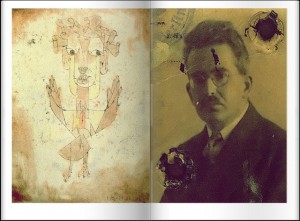 Walter Benjamin's relevance for activists today is most strongly felt in his works on social transformation. In the sixth of eight pieces on Benjamin, Andrew Robinson explores the Theses on History, and discusses the revolutionary implications of allegory, collecting, citation, DIY, and time.
Walter Benjamin's relevance for activists today is most strongly felt in his works on social transformation. In the sixth of eight pieces on Benjamin, Andrew Robinson explores the Theses on History, and discusses the revolutionary implications of allegory, collecting, citation, DIY, and time.
In Theory, New in Ceasefire - Friday, October 18, 2013 20:27 - 5 Comments
An A to Z of Theory">Walter Benjamin: Culture and Revolution An A to Z of Theory
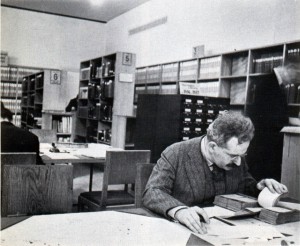 As a critical theorist and revolutionary, Walter Benjamin sought the political transformation of the arts as a means to bring about social change. In the fifth of an eight-part series, Andrew Robinson discusses Benjamin's work on cultural politics, covering the topics of Surrealism, storytelling and cultural production.
As a critical theorist and revolutionary, Walter Benjamin sought the political transformation of the arts as a means to bring about social change. In the fifth of an eight-part series, Andrew Robinson discusses Benjamin's work on cultural politics, covering the topics of Surrealism, storytelling and cultural production.
In Theory, New in Ceasefire - Wednesday, August 14, 2013 0:00 - 5 Comments
An A to Z of Theory">Walter Benjamin: Fascism and Crisis An A to Z of Theory
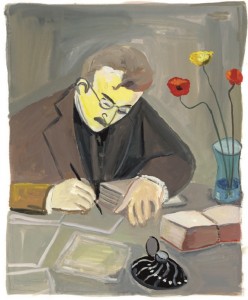 The context of economic crisis and rising fascism cast a long, and fatal, shadow over Walter Benjamin's world. This shadow strangely prefigures contemporary problems, with the economy once more in crisis and the far right on the rise. In the fourth of his eight-part series, Andrew Robinson discusses Benjamin's analyses of the effects of economic crisis on everyday life in Germany, and his account of fascism as the 'aestheticisation of politics'.
The context of economic crisis and rising fascism cast a long, and fatal, shadow over Walter Benjamin's world. This shadow strangely prefigures contemporary problems, with the economy once more in crisis and the far right on the rise. In the fourth of his eight-part series, Andrew Robinson discusses Benjamin's analyses of the effects of economic crisis on everyday life in Germany, and his account of fascism as the 'aestheticisation of politics'.
In Theory, New in Ceasefire - Friday, June 14, 2013 17:59 - 36 Comments
An A to Z of Theory">Walter Benjamin: Art, Aura and Authenticity An A to Z of Theory
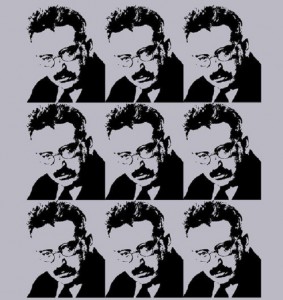 How has capitalism affected our experiences of art and the media? In the third of his eight-part series on critical theorist Walter Benjamin, Andrew Robinson examines Benjamin's famous thesis that mechanical reproduction has transformed the arts, and explores what a 'political art' might look like.
How has capitalism affected our experiences of art and the media? In the third of his eight-part series on critical theorist Walter Benjamin, Andrew Robinson examines Benjamin's famous thesis that mechanical reproduction has transformed the arts, and explores what a 'political art' might look like.
In Theory, New in Ceasefire - Friday, May 10, 2013 14:13 - 2 Comments
An A to Z of Theory">Walter Benjamin: Language and Translation An A to Z of Theory
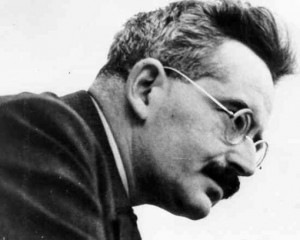 Walter Benjamin claims that mainstream, common-sense views of language are ideological – but what does he put in their place? What kind of writing practices does he encourage? In the second part of his series on Benjamin, Andrew Robinson discusses various texts on language, translation and mimesis.
Walter Benjamin claims that mainstream, common-sense views of language are ideological – but what does he put in their place? What kind of writing practices does he encourage? In the second part of his series on Benjamin, Andrew Robinson discusses various texts on language, translation and mimesis.
In Theory, New in Ceasefire - Thursday, April 4, 2013 0:00 - 7 Comments
An A to Z of Theory">Walter Benjamin and Critical Theory An A to Z of Theory
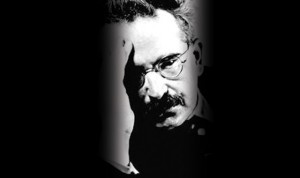 Walter Benjamin is one of the most influential critical theorists of the early twentieth century. His writings include original theories of the state, fascism and revolution. In the first instalment of a new eight-part series, Andrew Robinson introduces Benjamin's approach, and outlines his methodology.
Walter Benjamin is one of the most influential critical theorists of the early twentieth century. His writings include original theories of the state, fascism and revolution. In the first instalment of a new eight-part series, Andrew Robinson introduces Benjamin's approach, and outlines his methodology.
In Theory, New in Ceasefire - Thursday, February 7, 2013 0:00 - 0 Comments
An A to Z of Theory">Jean Baudrillard and Activism: A critique An A to Z of Theory
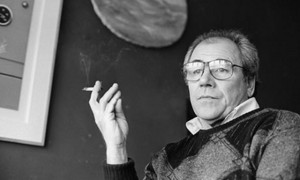 Concluding his series on Baudrillard, capitalism and resistance, Ceasefire columnist Andrew Robinson here provides his own analysis of the usefulness and limits of Baudrillard's theory for activists today. He compares Baudrillard to other theories of crisis and collapse, and asks whether Baudrillard's theory is sufficiently global.
Concluding his series on Baudrillard, capitalism and resistance, Ceasefire columnist Andrew Robinson here provides his own analysis of the usefulness and limits of Baudrillard's theory for activists today. He compares Baudrillard to other theories of crisis and collapse, and asks whether Baudrillard's theory is sufficiently global.
In Theory, New in Ceasefire - Friday, December 7, 2012 0:00 - 1 Comment
An A to Z of Theory">Jean Baudrillard: Catastrophe and Terrorism An A to Z of Theory
 Baudrillard's theory of capitalism and resistance includes a novel account of system-collapse, and an unusual theory of the emergence of terrorism. In this week's column, Andrew Robinson explores these aspects of Baudrillard's theory, and their relationship to his call for the return of symbolic exchange.
Baudrillard's theory of capitalism and resistance includes a novel account of system-collapse, and an unusual theory of the emergence of terrorism. In this week's column, Andrew Robinson explores these aspects of Baudrillard's theory, and their relationship to his call for the return of symbolic exchange.

